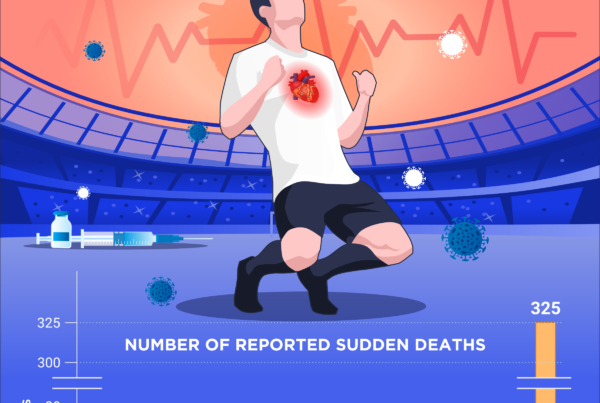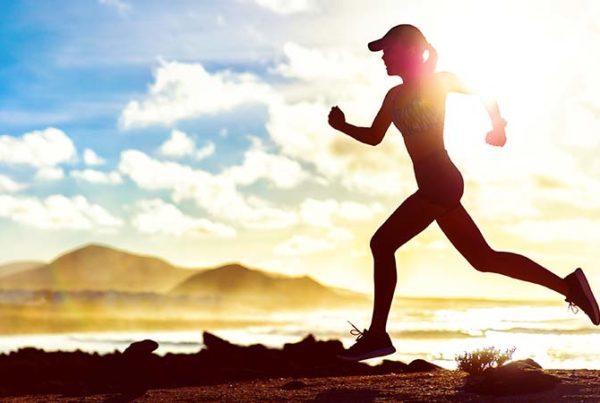By Vera C. Stek
(From: MyCentralJersey.com May 7, 2009)
Much is made of the elusive “runner’s high” athletes are said to experience during the sweaty, gasping pursuit of their sport. Many long-time runners vigorously deny or at least question the existence of such a feel-good aspect to training or racing, some of whom admit they only run because it feels so good when they stop.
Ken Vercammen, the 49-year-old Edison attorney who has a long history of successful running and racing as well as competing in triathlons, said, “I enjoy running, but don’t get a high. Perhaps after a few beers.” In fact, that’s one reason he’s so fond of hash runs, which meander through lavishly exotic obstacle courses: all to enjoy the beerfest celebration following the event.
Still, despite his slavish devotion to running which led at one time to a streak of daily runs lasting some 20 years (until he had to have surgery on his Achilles), Vercammen has never experienced a runner’s high.
“Does it exist?” asked Linda Ferrara, 60, of Branchburg. “I don’t know exactly what it’s supposed to be. A feeling of euphoria? A feeling of peace? There have been times when I’m running — usually during a race — when I have felt so good that I feel I could go at that pace forever. But is that it? Who knows?”
Diana Burton, 63, of Middletown, who travels the world running marathons after having discovered the sport a scant half dozen years ago or so, said, “Darned if I can find this runner’s high, though I’ve looked for it. And yet, if I don’t run, I get draggy and depressed, so there’s something going on that we don’t understand.
“Oh damn, I want that feeling! I don’t think I’ve ever totally lost myself (during a run), but I can readily do a 4-hour run all by myself in the woods and be totally content.”
Venerable coach and competitor Bill Welsh, 79, of Staten Island, has been running “on and off” since 1943. “I do believe in the runner’s high but my best years were in the ‘40s and ‘50s when I was a young racing daredevil. I do believe when things are going good, a euphoria sets in and a steady fast pace just flows as part of it.
“It can carry a runner to the finish line and if he or she wins, it can make them want to do that victory lap or even a mile more at the same pace before they come down from it,” Welsh said.
Though he continues to race at least once most weekends of the year, Welsh added, “Obviously I haven’t experienced that feeling for quite a few decades but I’m checking out a few bistros where I might feel that way again. Bottoms up.”
Andy O’Hearn, 47, of Bridgewater, an avid runner since 1980, has done a great deal of research on the topic of runner’s high. He can cite reports about the endorphins produced and released during strenuous exercise that result in the euphoria some athletes experience.
O’Hearn points out that besides running, runner’s high is said to also occur during swimming, cross-country skiing, long distance rowing, cycling, hockey, tennis, weight lifting, aerobics and some sports such as soccer and basketball.
“Yes, I have experienced runner’s high,” said O’Hearn, whose outstanding achievement in athletics was his streak of 285 straight days of doing a cardio workout, usually running, of at least 30 minutes, from April 24, 2002, to Feb. 2, 2003.
“It (runner’s high) usually kicks in between 50 to 75 minutes after beginning a run, after working through an initial period of sluggishness or exhaustion, where the temptation is great to ease up or stop,” he said.
“What I think causes it is the body’s fight-or-flight response. That is, once the body recognizes that exertion will continue, it kicks into a different ‘gear’ that allows for greater uptake of oxygen. While I don’t believe that it happens every time I run, it happens enough for me to not consider it as a myth,” O’Hearn said.
At least one local expert agrees runner’s high is no myth. “Runner’s high is real and results from our body’s production of endorphins,” explained Dr. Robert Boyd of Colonia, probably the most prolific running medical professional in Central Jersey, if not the entire state.
A frequent marathoner who has done the Goofy Challenge (back to back marathon and half marathon at Disney World) and can be seen racing virtually every weekend during the year, Boyd elaborated on the process.
“Endorphins are naturally manufactured substances which are produced during endurance exercise. They can take over your body and mind with a significant feel-happy euphoria, similar to what certain drugs can do.
“If you remember how the teenage girls acted in the early Beatles footage, you get the picture. Runner’s high can make you want to pick up your pace, so you have to be careful to maintain your race plan,” he said.
Boyd has experienced runner’s high on several occasions, usually after running 14 or 15 miles. “For me, personally, it has come 4 miles before hitting The Wall, another running phenomenon, which is associated with dehydration and low blood sugar.
“When I get a runner’s high, I ease up on my pace and focus on my water and carbohydrate status. I then cautiously proceed, hoping to avoid hitting the wall. So far it seems I have planned right. I no longer hit the wall after getting a runner’s high,” he said.
For those who haven’t experienced runner’s high but would like to, Dr. Phil Maffetone, who has trained many runners and was a frequent guest speaker at area events when he lived in New York (he now resides in Arizona), has good news.
“All runners can train their brain to promote alpha waves even when not training; once you learn it, you can click into it just about any time,” he said.
“Often associated with natural opiates in the brain, or a cognitive state of dissociation, the so-called runner’s high has recently been linked with the same brain receptors all humans possess stimulated by marijuana.
“When we’re mentally relaxed, unstressed, or doing something that takes us to our own private world, such as running, our conscious state produces alpha waves. This state also can be promoted by listening to music. So running with your favorite tunes can amplify the potential for runner’s high,” Maffetone said.
If you’ve never felt it, stress could be the reason. “Stress can overpower your enjoyment of a run, impairing your ability to make alpha waves. In addition, certain mechanical imbalances (certain injuries) can feed back to the brain,” also preventing the runner’s high.
Maffetone has developed the “5-Minute Power Break” which anyone can practice to induce the feeling of a runner’s high. Details are on his website (www.philmaffetone.com) and in the chapter on Brain Power in the 5th edition of “In Fitness and In Health.”
Read another article by Vera Stek








